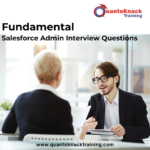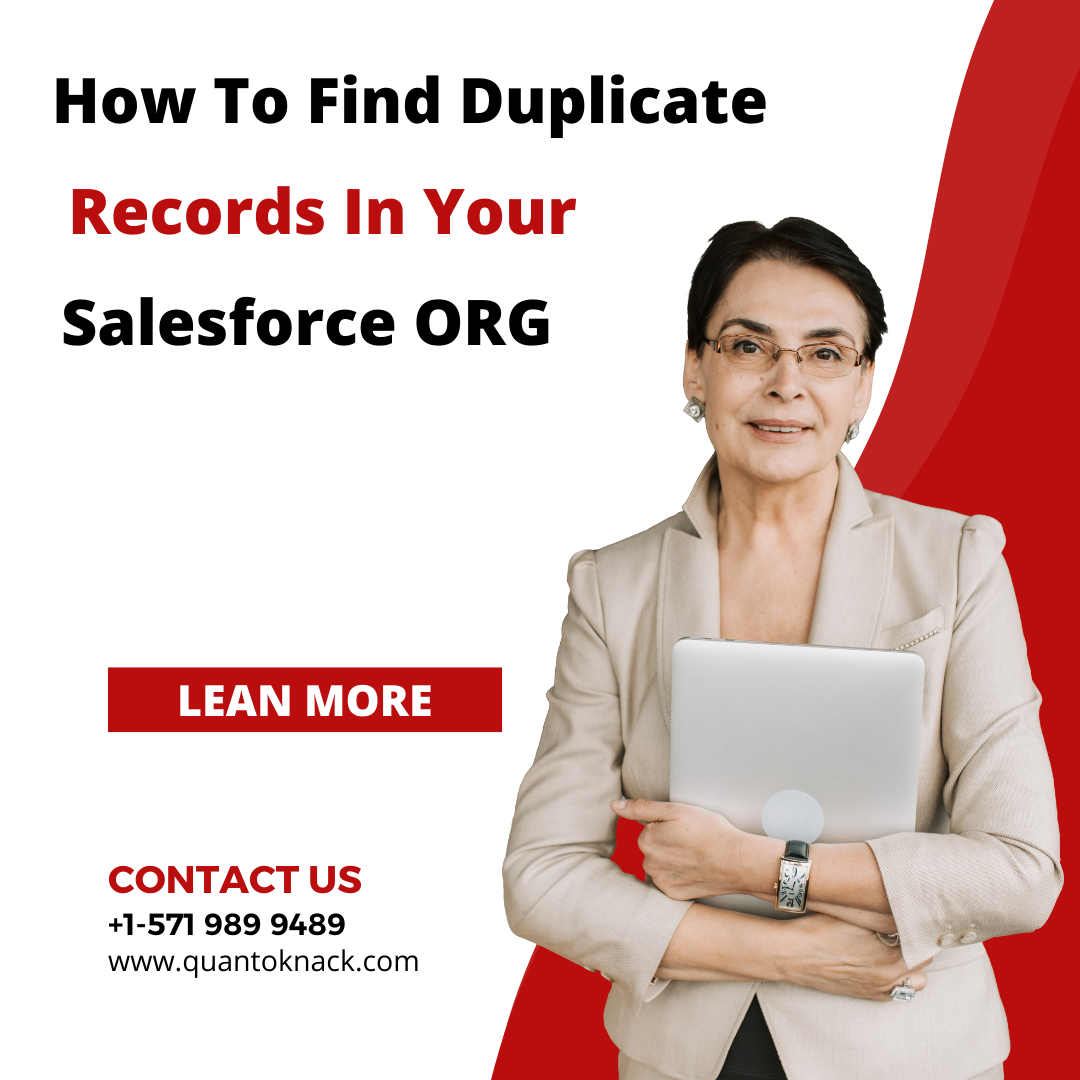
The Salesforce Admin industry is expected to enhance US$5 billion by 2023 from a sum of about US$180 million. Hence, a lot of crucial organizations are seeking certified Salesforce admin professionals.
This comprehensive guide on Advanced Salesforce admin interview questions include the list of top 20 questions that are asked during Salesforce Admin job interviews.
Following is the list of admin interview questions salesforce (Advanced) that you need to get through thoroughly before appearing for a Salesforce interview in 2024:
Question 1 – What is a sandbox environment in Salesforce, and what is it used for?
Answer – A sandbox is usually a copy of your organization in a specific environment that you can use for multiple purposes, such as testing and training. The operations you perform in your sandboxes don’t impact your organization’s production.
Question 2 – What is a custom object in Salesforce, and how is it used?
Answer – It is considered to be one of the most important admin interview questions in Salesforce. Custom objects are containers that you build yourself to suit your own desired requirements. Once it is created, you will be able to associate it with any record you want. It allows organizations to capture information that is not covered by standard Salesforce objects, like products, Account or events. This data is used to create custom applications and dashboards that offer a thorough overview of all relevant data in one location.
Question 3 – Can you explain the difference between a Role and a Profile in Salesforce?
Answer – Roles means the ranked structure within an organization and dominates record-level access. Whereas, Profiles govern the functional permissions that users own within the Salesforce platform. It rules object-level access. Roles and profiles work arm in arm to create a robust system that ensures appropriate data visibility and functional abilities for each other.
Roles in Salesforce
Roles are instrumental in administering data access and establishing a clear reporting hierarchy. Describing the roles efficiently, organizations can eventually regulate who can view, edit, and report on relevant sets of data.
Profiles in Salesforce
Profiles are different from roles, it focuses on the functional permissions rather than data assessment. A profile defines what a user can do within the Salesforce platform, consisting of the objects they can access, the actions they can perform, and the system-level permissions they possess.
Question 4 – What is a Record Type in Salesforce?
Answer – A record type permits you to have multiple versions of an opportunity record for various sales processes. Every record type can have its own set of fields, page layouts, and logic, tailored to the particular requirements of your business processes.
Question 5 -How does Salesforce handle data management?
Answer – It is considered to be one of the most important Salesforce admin interview questions. Salesforce allows customers with the option to manually backup their relevant data once a week. As a result of which, users should also manually backup data before going through any significant data project. Users can also manually restore their specific data with specific tools such as Data Loader.
Question 6 – Can you explain the distinction between a Salesforce custom object and a standard object?
Answer – Standard objects are pre-built objects that comprise Salesforce out-of-the box, like Accounts, contacts, and opportunities. Moreover, custom objects are created by administrators/developers to store information unique to their business needs that are not met by standard objects.
Question 7 – What is a junction object in Salesforce, and what is it used for?
Answer – A custom object that constitutes a many-to-many relationship between two other objects is known as a junction object. It is used to link two objects in a single record and to establish relationships between two objects efficiently.
Question 8 – In Salesforce, what is the difference between a lookup relationship and a master-detail relationship?
Answer – A lookup relationship type in Salesforce allows you to create a link between two objects, but the child object is not dependent on the parent object. In case the parent object is deleted, the child object remains unchanged. Moreover, a master-detail relationship creates a parent-child relationship between two objects where the child object is dependent on the parent object. If the parent object is deleted, simultaneously the child object is also deleted. Master-detail relationships offer stronger data relationships and can be utilized to master-detail relationships offer stronger data relationships and can be used to impose data integrity and security.
Question 9 – Can you explain the use of Salesforce Custom Metadata Types and how it differs from Custom Settings?
Answer – Custom settings have their own explosion controls and can be visible to relevant profiles and users. Custom Metadata records can be acquired by all users, but you can control the visibility of custom metadata types utilizing permissions. Moreover, custom settings have specific limitations on the number of records and field types.
Definition of Custom Setting and Custom Metadata
Custom setting – It is a type of object in Salesforce that permits you to create more custom data storage at the firm, profile, or user level. It is stored in the application hoard and can be accessed through the Apex code efficiently.
Custom Metadata – It is also a type of object in Salesforce that allows you to create data storage, but it is custom- made at the metadata level and can be arranged between multiple environments.
Question 10 – How would you ensure data quality in a Salesforce implementation?
Answer – Data quality can be secured by executing validation and duplicate rules and using the Data Loader to check data before importing it. Regular data audits can also be performed to find and correct variability. Also, offering user training to ensure they understand the importance of data quality and how to input data efficiently can help you maintain data quality.
Question 11 – Can we stop users from deleting the record using a validation rule?
Answer – Unfortunately verification rules do not work in delete contexts, so a solution utilizing just RH and validation rules would not be possible. Moreover, the delete operation will go through, and the verification rule won’t be able to hold it.
Question 12 – Is it possible to fire a validation rule only when a record is being inserted and not being updated?
Answer – Yes it is possible to fire a validation rule only when a record is being inserted and not being inserted. Check out the ISNEW () and ISCHANGED () functions. Rule entries that comprises ISNEW() says if there is a new record created, it will fire. Those which include ISCHANGED() says if there is a change in the subsisting record, the rule will fire.
Question 13 – What is the difference between ISNULL and ISBLANK?
Answer – It is considered to be one of the most important admin interview questions in Salesforce. ISBLANK has the same practicality as ISNULL, but also holds up text fields. Salesforce will continue to support ISNULL, so you do not require to change any existing formulas.
Question 14 – What is the page layout in Salesforce?
Answer – Page layouts control the layout and firms of buttons fields, s-controls, visualforce, custom links, and related lists on object record pages. They also help understand which fields are visible, read only, and needed. Use different page layouts to customize the content of record pages for your users.
Question 15 – What is the difference between a public group and a Queue?
Answer – Huge difference between Queue and the public group is queues are utilized as owners of records to share load while groups are used for security, i.e., to open up an outbreak for a set of users.
Question 16 – What is public read-write transfer available on specific objects in OWD?
Answer – Public read-write transfer available on relevant objects in OWD is usually available only for the case and lead objects, along with users being able to read and write the record. They can also transfer ownership of the record based on whether they have an appropriate approach to the profile. Moreover, to know more about Salesforce admin interview questions then you can join Salesforce admin training at any renowned training institute.
Question 17 – What will happen to child records if we delete a parent record in Lookup Relationship?
Answer – When you define a lookup relationship within two objects, you choose a result for if the main record is deleted what should happen with lookup value will be cleared, or we will regulate the user from deleting the main record itself.
Question 18 – What are the different types of sandboxes available in Salesforce, and what are their uses?
Answer – To help multiple organizations with their unique development needs, there are 4 different types of Sandbox in Salesforce that you need to know:
- Developer Sandbox – It is meant for development and testing in an isolated environment. A developer Sandbox comprises a copy of your production organization’s configuration.
- Developer Pro Sandbox – It is usually used to handle more development and quality assurance assignments and for integration testing or user training.
- Partial Copy – It is used for quality assurance tasks like user acceptance testing, integration testing, and training.
- Full Copy Sandbox – It supports performance testing, load testing and staging at the same time.
This is the most commonly asked Salesforce admin interview questions that you should go through.
Question 19 – Can you mark standard fields as Dependent fields?
Answer – No
Question 20 – What is the search layout, and how do we see it?
Answer – Search layouts let you control what users see when search returns outcomes. You can also generate layouts for standard and custom objects, making sure the layout shows users what’s most specific to them. Layouts are applied on a per-object basis. The moderations you make for an object’s layout applies to all users.If you are interested in enhancing your software development skills further, we recommend you to check Quantoknack Training Salesforce admin courses online. This course can help you learn the right skills and make you ready to grab a better Salesforce admin job role.






